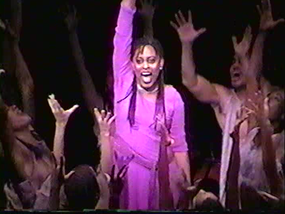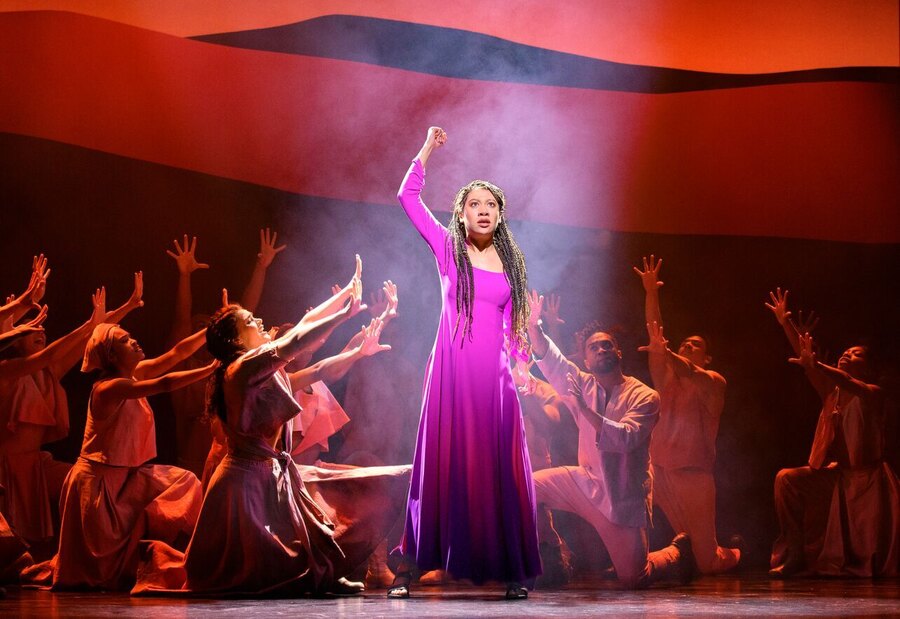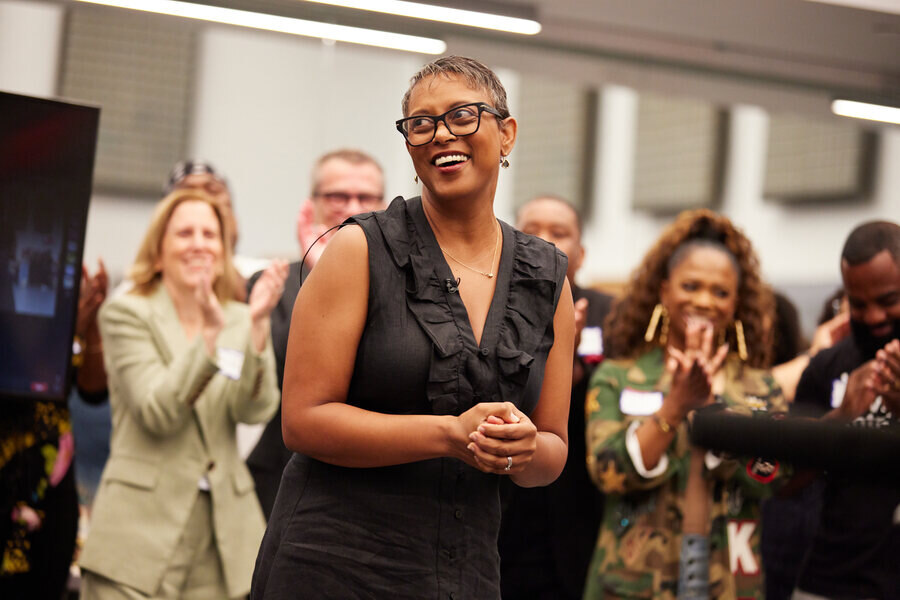The word revival, according to Schele Williams, means to give new life. But in order to give something a future, one must be willing to fully unpack and understand the meaning of its past.
Williams, a busy actor, director, and author, has recently been tasked with giving new life to two beloved Broadway classics, Aida and The Wiz. As a member of the original Broadway cast of Aida, and growing up on the story of The Wiz, Williams understands the weight these stories hold in the Broadway canon, and especially in the context of Black culture. She is passionate about continuing the tradition by passing down these tales to the next generation, but she is aiming to ensure that both of these new iterations resonate with audiences as they once did with her.
The Aida revival, currently running at AFAS Circustheater in Scheveningen, the Netherlands, was to have a developmental lab in the spring of 2020, but when COVID paused the rehearsal process, Williams used the time to rethink how the story would land with audiences when theatres reopened. “We went back into the show and said, okay, this is different,” Williams said. “The world is different. We have shifted. We’re better artists now. Let’s break the show open and do a full rewrite.”
That rewrite, which involved original book writer David Henry Hwang, consisted of new research into Nubian and Egyptian history that Williams said was absent from the original staging. She is weaving this throughout the set, characters, costumes, and script—without making you feel like you are in a history class. “It’s not a documentary,” she said. “It’s still an Elton John musical, but are there moments in history we can glean and use to actually tell something that is unexpected?”
She started her reexamination with gender roles. In Williams’s research, she found that women were often of equal status in ancient times, holding the positions of physicians, having the opportunity to own their homes, getting divorces, etc. “It’s not that we’re trying to make some kind of feminist statement,” Williams said. “It actually is the way it was.” That thinking is behind the change from Aida’s parent being a patrirach to her having a mother, a kanadke, which translates as warrior queen. “I got the Disney show with the mom, y’all,” Williams said with a chuckle.
Another element that audiences won’t see in this new version is colorism as a plot device. In the original versions of Aida (both Verdi’s opera and the Broadway musical), Egypt and Nubia were separated by race. But Williams said that research shows there was not a power dynamic between Egyptians and Nubians based on race or color, but rather on religious and geographical grounds.
“We have to, in our storytelling, push the boundaries of our imagination and lean further into humanity,” Williams said. “If we’re relying on race to tell 50 percent of the story, then we’ve gotten very lazy in our storytelling.”
In addition to being more accurate, this choice opened the door to more Black actors. “When I had Black men come in for Radames and Black women come in for Amneris, I cannot tell you the amount of people that literally cried,” Williams recalled. “The people who said to me, ‘I never imagined I would get to play this role—I’ve always loved this show, but I thought this door was forever closed to me.’”

For Williams, directing Aida brings up a feeling of nostalgia. It has been over 23 years since the original production premiered at the Palace Theatre, with Williams in the role of Nehebka; she also understudied Heather Headley in the title role. But her new role as director brings with it new responsibilities. Williams knew that to change what we saw on the stage, she also needed to change the dynamics of the rehearsal room. There was never a conversation about slavery, she said, in the original rehearsal room, though it’s a prominent aspect of the story.
“It was taboo in the process,” she recalled. “It’s an interesting thing when you don’t want to talk about something, but you have to be it. As a cast, it was unspoken. That’s tricky.”
It’s a nuanced and complicated conversation, of course, since slavery in ancient Egypt and Nubia was not the same slavery that existed in the Americas. But it was a subject that needed to be broached.
“I needed someone behind the table to look at me who could see me and see all of us Black people in the room and say, this is something we need to talk about,” Williams said. “I needed to become the person behind the table, so that no one ever had to go through that on my watch again.”

While Aida has been on its journey, Williams has also been traveling down another road, a yellow brick one, as she’s at work on the highly anticipated revival of The Wiz, which starts a national tour later this month in Baltimore, and lands on Broadway next spring. Apart from an Encores staging in 2009, it’s been almost 45 years since the Charlie Smalls musical has had a major New York revival. Williams said she walked into this process knowing that today’s artists are “standing on the shoulders of the most incredible generation of stage actors that taught me that I belong here, that there is a place for me.”
In this case, Williams does not feel the need to excavate or correct anything about The Wiz, as she did with Aida (though writer Amber Ruffin has been brought in to do some tweaks to William Brown’s original script). Instead she can direct her focus on how the story can make an impact on a new generation of audiences as it did for her. Williams was in her senior year of high school when she was cast in a production of The Wiz, and that changed the trajectory of her career. It’s a full-circle moment, no doubt, but it also gives her a way to pay it forward.
Her daughters serve as a guiding light for her throughout the process. Williams recalled a conversation that she had with them when they moved out of New York City after the pandemic.
“You gotta find your tribe,” she remembered telling them. “You gotta find your friends that are quirky like you. That’s what I think about when I think about Dorothy and her journey of The Wiz, and the challenges she faces and all the questions she has about herself. “
Williams wants her daughters’ generation to have their own version of this beloved musical to grow up on.
“I want them to feel like it’s theirs and they’re just borrowing something that belonged to Mama,” she said. “You can love your version of it, you can love my version of it, and we can talk about each person’s version. So let’s keep passing this down.”
Rachelle Legrand (she/her) is a writer based in Michigan.


